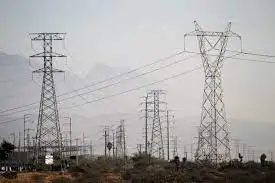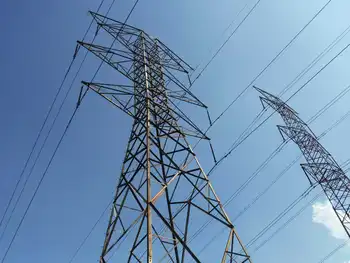Power lines needed to prevent blackouts
WASHINGTON, D.C. - The U.S. Department of Energy took a stand against electricity blackouts by giving utility companies the ability to override local opposition to power lines.
DOE announced that Virginia, Washington, D.C., and six other states are now part of a Mid-Atlantic corridor, where electricity congestion is a "significant" problem. The department on ensured that federal regulations would now keep that power flowing.
"The goal is simple - to keep reliable supplies of electric energy flowing to all Americans," said Secretary of Energy Samuel W. Bodman in a statement. The designation encourages utilities to "take prompt action," Bodman said.
The Mid-Atlantic region was named one of two National Interest Electric Transmission Corridors where the federal government could override state and local opposition to power line construction.
The other corridor includes California and Arizona. Opponents of the corridors testified at a DOE hearing in April, saying the corridors make the state process of applying for transmission lines irrelevant. Wolf, Rep. Tom Davis, R-11th, and Rep. Maurice Hinchey, D-N.Y., said they are working to strip the government of the power to overrule state decision-making. Dominion has an application to build a transmission line from West Virginia to Loudoun County under current Virginia State Corporation Commission review.
Now that Virginia is included in the corridor, if the SCC doesn't approve Dominion's application within a year, the utility company can apply to the Federal Energy Regulatory Commission for approval to build the high-voltage line.
Earlier this year, a Dominion spokesman said Dominion wouldn't resort to using the national corridor designation because the company would likely be successful in the state application process. Opponents of that power line were disappointed with the DOE decision.
"People from Watertown, New York, through Long Island, all of New Jersey, Delaware, Maryland, and counties in Virginia, Ohio and West Virginia are at risk of utilities using the federal government as their conduit to import coal electricity through places that won't even receive it," said Robert Lazaro, spokesman for the Piedmont Environmental Council.
The PEC has taken a firm stance against the Dominion proposal, saying the electricity company should work to increase efficiency instead of building power lines. So has Rep. Frank Wolf, R-10th. Both said it seems the DOE did not consider public opposition to the corridors. A DOE news release says the department considered more than 2,000 comments from 60 public hearings across the country.
"(The corridor designation) makes no sense and has the potential to destroy neighborhoods and desecrate huge swaths of historically significant land," Wolf said in a statement. "The fact that power companies will continue to be able to ignore the need for increased conservation and smart technology remains extremely troublesome."
Dominion defends its application by citing increased electricity demand by 2011 - so much that the region could face blackouts without the addition to its electricity transmission network.
DOE's corridor designation aims to prevent those blackouts by helping utilities gain approval for transmission line construction permits. Dominion aims to finish construction of the transmission lines by June 2011. The NIETC in Virginia includes Manassas, Manassas Park, Alexandria, Harrisonburg, Fairfax, Falls Church and Winchester, and Prince William, Arlington, Clarke, Culpeper, Fairfax, Fauquier, Frederick, Loudoun, Madison, Page, Rappahannock, Rockingham, Shenandoah, Stafford and Warren counties. Both point to the Northeast blackout of 2003 as the impetus for building more lines.
On Aug. 14, 2003, more than 50 million people were left without power due to utility company failures, some of which were against industry recommendations.
Phyllis Dodson, whose property in Fauquier County lies in a proposed power line path, said she's hopeful. "We are still confident that we can win the battle at both levels and no more above ground transmission lines will be built through our beautiful countryside," Dodson said. "There are groups working on several fronts to stop this plan."
Related News

US Electricity Prices Rise Most in 41 Years as Inflation Endures
WASHINGTON - Electricity bills for US consumers jumped the most since 1981, gaining 15.8% from the same period a year ago, according to the US Bureau of Labor Statistics.
Natural gas bills, which crept back up last month after dipping in July, surged 33% from the same month last year, labor data released Tuesday showed. Broader energy costs slipped for a second consecutive month because of lower gasoline and fuel oil prices. Even with that drop, total energy costs were still about 24% above August 2021 levels.
Electricity costs are relentlessly climbing because prices for the two biggest power-plant fuels -- natural…




